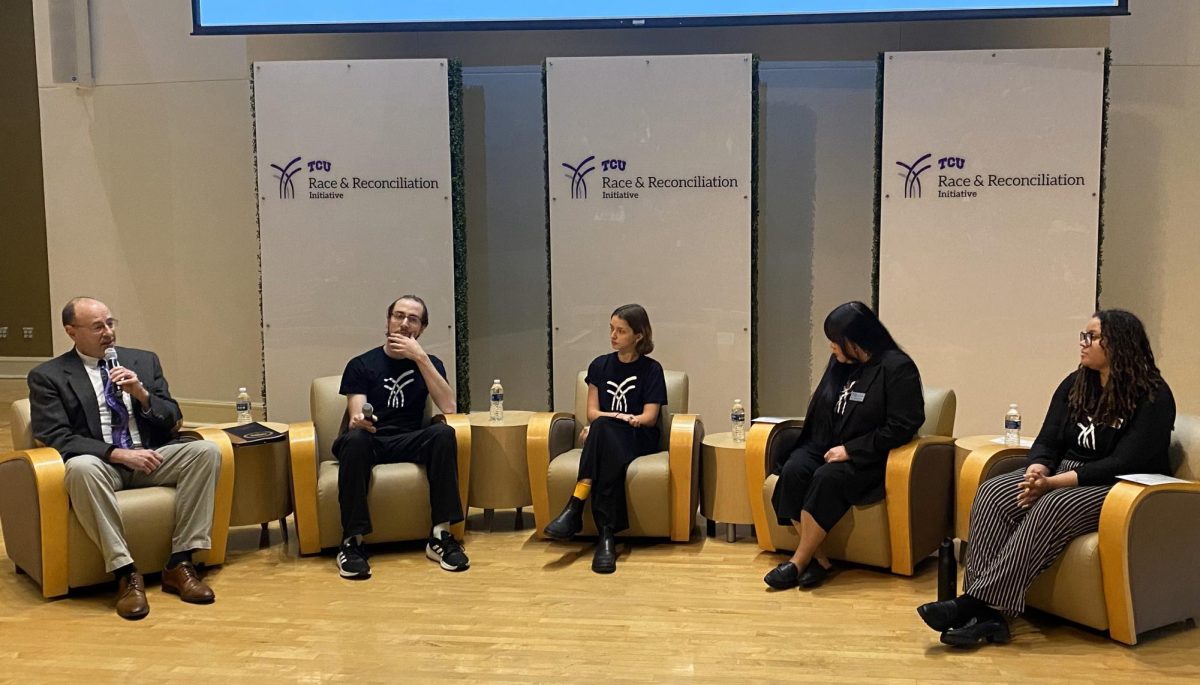Haley Schoolfield, director of equestrian, said collaboration will be a key ingredient for the team’s success this season.
“A lot of team unity – we are working really hard on that and then just building on every ride and every experience and becoming better and better,” she said.
Team cohesion will be imperative for the team’s success because the National Collegiate Equestrian Association has transitioned from naming a Hunt Seat national champion and a Western national champion to just an overall national champion this year, she said.
Schoolfield returned to coach the Horned Frogs this season after working with the SMU equestrian squad for the past four years.
“We’re very excited to have Haley returning to the TCU family,” Director of Intercollegiate Athletics Chris Del Conte said. “When she began her coaching career with us, we were a new program and she was very instrumental in our immediate success.”
The program is headquartered at Turning Point Ranch in Springtown, Texas, a facility purchased in 2012 for the sole use of the TCU equestrian team.
Schoolfield said it is an incredible edge for her team to have its own facility since the team practiced in Mansfield, Texas at the time she left the university.
“We went from being tenants of a boarding barn in Mansfield to having our own facility out here in Springtown,” Schoolfield said. “I’m so glad to be back. I was last here in 2009 and [the program] has grown and improved exponentially.”
Junior Western rider Katelyn Gray said the Springtown facility allows the Western team and English team to support each other because they are in closer proximity.
Prior to the team’s move to Springtown, she said the program did not own their arenas and that the Western team and English team practiced and competed in separate locations.
“The English team would compete and then we would compete down this really long hill, so we literally had no idea how the other team was doing on competition day until it was over,” she said.
The Springtown facility allows for greater interaction between the two types of riders.
“We get to keep track on both teams and watch the other girls and support them more,” she said.
Schoolfield said her athletes are at the barn between two and five days a week. She said another advantage to owning the facility is that her team can practice whenever they wish.
She said taking on the position of director has proven to be a different challenge than being a head coach.
“It’s looking at the team as a big picture instead of focusing on the acute everyday happenings, and kind of trying to direct our team in an upward and positive direction in the future and being an advocate of the student athletes,” she said. “It’s a little more big picture, [rather] than focused on the day-to-day grind.”
Next up for the equestrian team is competing against Kansas State on Oct. 19 in Springtown.






